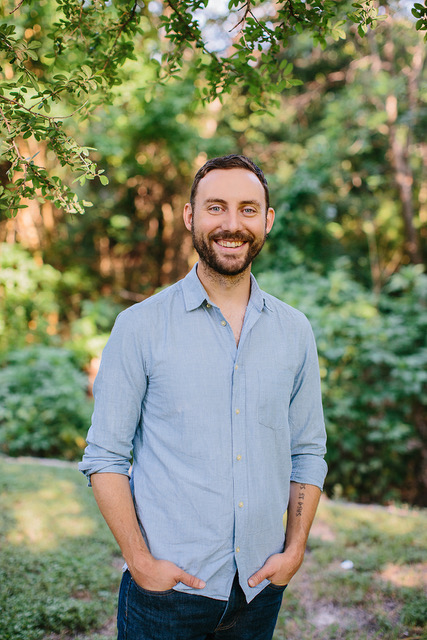Alumnus and Adjunct Faculty Member Awarded Dissertation Scholarship

Sam Davidson, a Truett Seminary alumnus and current adjunct faculty member, recently shared about doctoral work and ongoing academic pursuits. Davidson, who earned his BA at Baylor and MDiv at Truett Seminary, is presently finishing his doctoral thesis, “Deep Ecclesiology: An Ecological Recalibration of the Doctrine of the Church,” which has received recognition from the National Association of Baptist Professors of Religion. In a recent conversation with Davidson, we asked him a few questions about his work.
How has your time at Truett, both as a student and as an adjunct faculty member, shaped your theology and academic pursuits?
One of the biggest things that my time as a Truett student ingrained in me is the belief that theology should always be done for and from the Church—not just as an intellectual exercise but as a refining of what the Church preaches and a reflection on how it exists in the world. I think that comes through strongly in a lot of what I’ve published, and I try to really emphasize this for my students as well.
Something else that I’ve really come to value about my experience at Truett after studying theology in other places is how well Truett provides a narrative by which to understand Christian history and a deep appreciation for the tradition and its importance for doing meaningful theology here and now.
What inspired your dissertation?
We’ve been part of DaySpring Baptist Church here in Waco since 2016, even while we were living in Edinburgh and Princeton. Several years ago, DaySpring’s grounds (which are on the outskirts of the city by Lake Waco) were designated a Certified Wildlife Habitat by the National Wildlife Federation, which means that they sustainably provide all the necessary resources for critters to thrive—such as water, food, shelter, and places to raise young—and that we are committed to keeping it that way. That really sparked my theological imagination with regard to the status of the grounds and the animals that live there and whether the care we were extending to them meant that they were, in some sense, members of our church community.
I think that can sound kind of silly at first, but the more I reflected on it, the more I realized that there were several quite complex theological questions at work in that idea regarding Christology, ecclesiology, and anthropology, and I wanted to think through them in a sustained way. I tell this story in detail in my introductory chapter because the project is, in many ways, an apologia for my own theological imagination and the culmination of numerous threads I’ve been chasing since my master's research at Edinburgh: about what it means to be human, what it means to be reconciled to God and others, and how Christ is present in the world in the midst of our fallenness that manifests not just internally but in our relationship to the rest of creation.
Your dissertation focuses heavily on ecclesiology. Does your work focus predominantly on a Baptist form of ecclesiology? If so, how does this perspective of Baptist life engage with your work and/or time at Truett?
It’s not trying to do specifically Baptist ecclesiology in an explicit way, but I’ve been a Baptist my whole life so that identity is definitely shaping how I think about what the Church is. As I’m working on the final chapter, one of the things I’m trying to think through is whether I need to include some kind of excursus on being Baptist because my emphasis on the local church is so strong and, in many ways, just kind of assumes a Baptist vision of community life that I don’t think is necessarily obvious or comprehensible for a lot of people outside the Baptist world.
What would you want the Truett community to know about your work?
I think one of the biggest things I would want the Truett community to know—especially students—is that you can be deeply committed to scripture, orthodoxy, and the tradition of Christian theology and still engage in a really open-minded and open-hearted way with fields of science like ecology, psychology, and biology. These disciplines aren’t threats to faith or theology (much less to God!), and if we can have the humility to learn from them and engage with them from the starting point of faith in Christ, they have the potential to refine a lot of false assumptions that we bring to the Bible as modern, western readers.